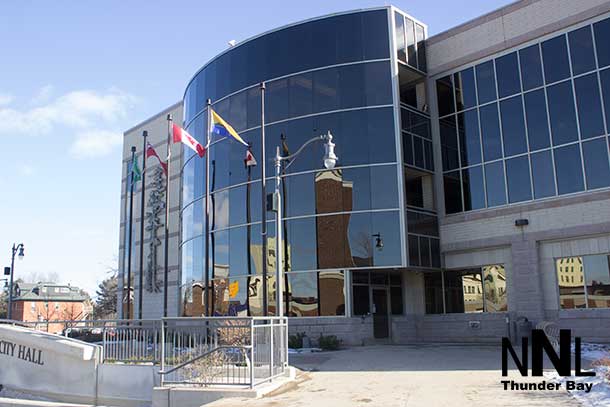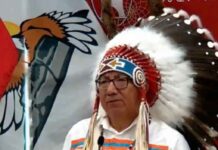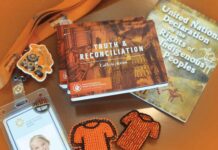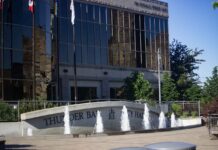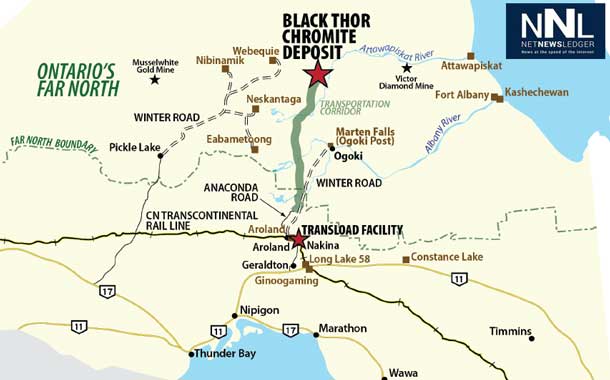THUNDER BAY – NEWS – The Thunder Bay Police Services Board has issued a statement in response to a letter received on May 29th from Nishnawbe-Aski Nation Grand Chief Alvin Fiddler.
Letter Released by Brian McKinnon – Vice Chair Police Services Board
Late in the afternoon of May 29th, 2017, our Board received correspondence under the signature of Grand Chief Alvin Fiddler of Nishnawbe-Aski Nation, Ogichidaa Francis Kavanaugh of Grand Council Treaty 3, and Chief Jim Leonard of Rainy River First Nations.
With great respect to the signatories to that letter, we take issue with some of the factual assertions, and the conclusions set out in the letter.
The Police Service Board is not permitted to take action or provide direct supervision with respect to the day-to-day operation of the Police Service. The Board’s duty is to be part of civilian oversight, along with the Ontario Civilian Police Commission, and the Office of the Independent Police Review Director. The Board takes this mandate seriously.
This Service has been scrupulously analyzed with respect to the matters dealing with the tragic deaths of seven (7) young persons seeking an education in the City of Thunder Bay. The Inquest examined matters touching on the systemic racism, and challenges that face indigenous youth as they come to further their education away from their remote communities.
This Board accepts that systemic racism is a barrier to the Indigenous peoples. Systemic racism is a much broader term than just the relationships between police and Indigenous communities. A police service cannot cure systemic racism. We accept that our Service has a role to play. The board and the service continue to support and participate in the ongoing OIPRD review. That includes a review of systemic racism in policing in Ontario.
Nevertheless, we wish to make it clear that the officers and civilian staff of the Thunder Bay Police Service are expected to engage in bias-free policing, sensitive to the cultural needs of the Indigenous population. We as a Board have no greater commitment than seeing the Indigenous population is dealt with respectfully.
Thunder Bay Police have responded and continue to respond to recommendations from the Inquest. The efforts to date include:
• Public awareness of Missing Person report procedures are available on the TBPS website
• Changes were made to our missing person policy prior to the inquest. Since this is an operational policy, we continue to review and revise as appropriate. Officers have been provided up to date training on these procedures.
• The TBPS is working with Matawa, DFC, KO, and NNEC on missing persons’ protocols and contact information for their on-call workers. The Police Service has requested a set list of descriptors and identifiers for all students attending Thunder Bay from Northern First Nations Communities.
• The TBPS utilizes social media as one of the many tools used in missing person investigations.
• Press releases are created by the TBPS in consideration of the specific circumstances of each individual investigation. The working group still needs to consider best practices for media releases.
• NAN Legal Services has been utilized as a liaison to assist persons who have challenges or fears in their dealings with police.
• Walk a Mile training continues for members of the TBPS. Over 80% of our members have received this training.
• The TBPS Training Unit provides the Police Services Board with an annual report summarizing training undertaken by our members.
• The TBPS provided personal safety training to members of the Bear Clan Patrol (a NAN initiative) which is a citizen’s group that conducts foot patrols to promote safety within the Indigenous community.
• Since the fall of 2016, the TBPS conducts focused daily foot patrols along city waterways and recreational trails which have been previously identified as high risk areas.
• The TBPS has collaborated with the City of Thunder Bay’s Safety Audit Committee. Three safety audits were conducted the week of May 15, 2017. These have looked at 3 high risk areas near city waterways and provide recommendations for improvements to public safety.
• The TBPS and the LCBO have formed a working task force to look at the issue of “runners” who are second party purchasers and are providing alcohol to minors.
• The TBPS has partnered with NAPS, Matawa, DFC and NNEC to fly officers to northern First Nation communities to provide insights to students as they make the transition to an urban community.
• The TBPS is providing advice and guidance to the 211 call reporting group. This initiative will assist members of the public to report incidents of racism in Thunder Bay.
Recently, there have been two (2) more tragic deaths. Young Tammy was found deceased within seven (7) hours after the missing person’s report. Officers and civilians alike searched urgently for young Josiah. A lengthy search for Josiah involved many dozens of volunteers, both indigenous and non-indigenous. The police worked as fast as possible to cooperate with, and to enable the civilian searchers to complement the search by uniform officers.
The Ontario Civilian Police Commission has informed the Board that it will conduct an investigation pursuant to s.25(1)(b) of the Police Services Act(PSA). We welcome this investigation without reservation and will cooperate fully. The Board recognizes the need for public confidence in the police service and its governance.
The Board welcomes a suggestion from Mr. McNeilly, the Director of the OIPRD, that all concerned parties join together in moderated meetings to allow a frank and fair exchange of concerns, and ideas for progress.
This statement has been unanimously approved by all of the members of the Thunder Bay Police Services Board.
Brian McKinnon
Vice Chair – Thunder Bay Police Services Board

